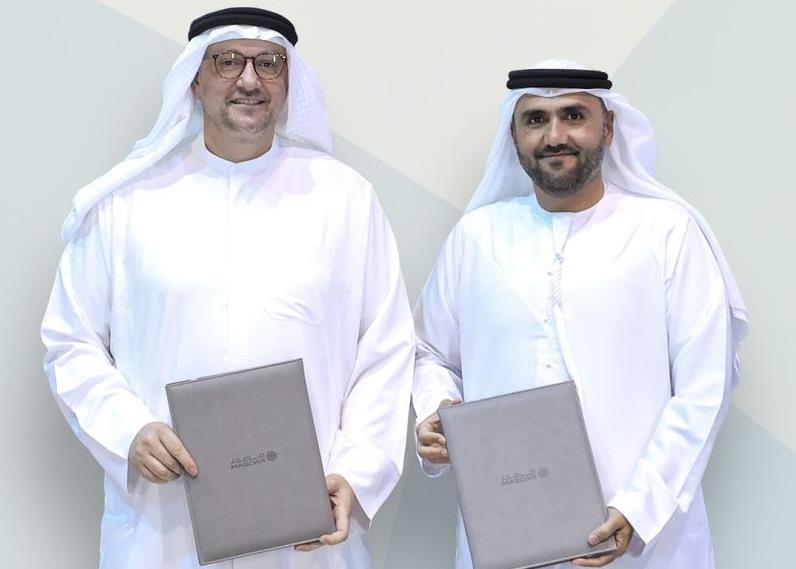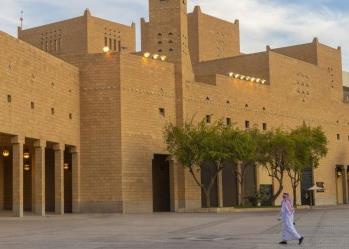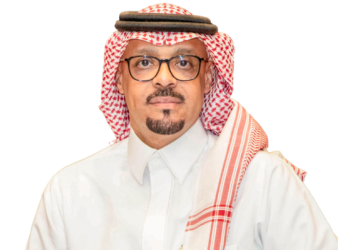
Damacs listing on the London stock market suggests international investors are not yet convinced by Dubais recovery story
A winter chill was settling on London in early December as shares in Dubais Damac Properties began trading on the London Stock Exchange. The reception from investors was not particularly warm either.
Damacs market debut on 3 December was almost a week later than originally planned, a delay the company said was to allow for the result of the World Expo 2020 competition to be known and for the US Thanksgiving holiday to pass. Dubai duly won the right to host Expo 2020, but it seemed to make little impression on potential investors.
| Timeline for listing | |
|---|---|
| 04-Nov | Damac announces intention to float on the London Stock Exchange on 27 November |
| 14-Nov | Indicative price range set of $12.25-$17.25 per GDR |
| 26-Nov | Damac announces listing postponed until 3 December |
| 02-Dec | Pricing set at $12.25 per GDR, valuing company at $2.7bn |
| 03-Dec | Trading begins on stock market, with shares closing at $12.20 by the end of the day |
| GDR = global depositary receipt, each worth three ordinary shares. Sources: Damac; LSE. | |
Personal shares
In an indication that the wider world is not yet as optimistic about the recovery in Dubais property market as some locals, fewer shares were sold than expected and they were sold at the bottom of the price range. Even then, they fell on the first day of trading.
The shares were sold by Hussain Sajwani, the founder, chairman and chief executive officer of Damac, rather than by the company itself. He had hoped to sell at least $500m worth of global depository receipts in a price range of between $12.25 and $17.25 apiece, giving the company a market capitalisation of $2.7bn to $3.7bn. In the end $348m worth of shares were sold at $12.25 each. More could yet be added through an over-allotment option, taking the total proceeds to $400m.
The IPO is in the interests of all Damacs stakeholders, from a contractors point of view, from a landowners point of view and from a buyers point of view
Hussain Sajwani, Damac
Deutsche Bank and the US Citigroup and were joint coordinators and book-runners on the deal, while the local Samba Capital and Russias VTB Capital were co-lead managers. Despite the scaling back they had advised on the initial public offering (IPO), Sajwani insists the process was a success.
People were very enthusiastic, he says in an interview with MEED in the companys office in Londons Knightsbridge district a few hours after trading started. The banks advised us to reduce the amount and give it only to the big fund managers. We wanted quality investors who will stay with the company for the long term. That was the main reason why we made the amount $400m and why we went to the bottom of the price range.
Sajwanis own bank account will now look very healthy, albeit not quite as healthy as it might have done, but he says being a publicly listed entity should provide benefits for the company too.
The IPO is in the interests of all Damacs stakeholders, from a contractors point of view, from a landowners point of view and from a buyers point of view, he says. I think being public will enhance the confidence of customers and it will help to drive sales. It enhances the credibility when youre buying big parcels of land from governments. Banks are more comfortable, contractors are more comfortable dealing with us. And being a public company allows us to create stock options for employees.
Property bubble
Confidence and credibility are important for any real estate market, but particularly for Dubai as it continues to climb out of its 2008-09 slump. Prices have been rising fast in the past year. According to real estate agent Jones Lang LaSalle, the average asking price for rented apartments was 15 per cent higher at the end of September than a year before while sale prices were up 20 per cent. Some areas are seeing even faster rises and the speed of recovery has been unnerving some observers, including the Washington-headquartered IMF, which warned earlier in the year that another bubble could be created unless care is taken.
In the past 12 months weve seen rents increase by 25 per cent, which is a clear indicator that demand is higher than supply
Hussain Sajwani, Damac
There have been a number of announcements of new megaprojects in real estate and in tourism that are supporting confidence and growth, but they also call for a prudent implementation and prudent economic management in order to prevent a possible build-up of a renewed boom-and-bust cycle in the UAE, said Harald Finger, the IMFs mission chief for the UAE, on 30 July following his organisations annual review of the UAE economy.
In our assessment, its too early to speak of a bubble now. At the same time, should Dubais increases continue at this pace, over time theres certainly a risk that there would be a new bubble building up.
There have been similar warnings from other economists and real estate brokers. Sajwani, however, insists the current growth rates are being driven by sustainable levels of demand.
At the end of 2008, the crash happened and construction halted for four years, he says. In the past 12 months weve seen rents increase by 25 per cent, which is a clear indicator that demand is higher than supply. There is a shortage of supply and it will take three to four years to address that. All the new development [that is happening] now will take three to four years to come to the market. Youre talking 2016 at the earliest.
Today, prices are up by 30 to 40 per cent from the bottom, but theyre still 40 per cent below 2008 prices. Prices today are still no higher than they were in 2006-07. And prices are lower than in comparable cities like Bombay, Istanbul, Singapore or Beirut.
Even so, the authorities appear wary of any over-exuberance and have been taking measures to keep things under control. The Central Bank has promised to introduce mortgage caps with a maximum loan-to-value ratio of 80 per cent for UAE nationals and 75 per cent for foreigners, and the transaction fee on real estate deals was raised to 4 per cent in October.
Regulatory control
Sajwani says that, in general, greater regulation of the property sector is making it harder for new developers to enter the market, offering an advantage to those already there.
The market is so regulated now, it really is a big barrier for newcomers, he says. They will come and maybe they will do one project here or there, but by the time they get started, and get a building permit and all their paper work in place it will take them 12 to 18 months.
Alongside the new regulations, some developers have been bringing in their own restrictions to try to avoid the worst excesses of the last boom, for example by banning real estate brokers from reselling properties before the new units are completed and handed over. Sajwani says Damac has no plans to bring in similar rules, but it has taken other measures to limit the appeal of its properties to speculators.
We demand 35-40 per cent [of the purchase price] in the first six to nine months, he says. We are selling to people who are financially strong and who are committing to paying quite large sums within a short period of time and that really discourages a lot of speculators.
Bringing in buyers while the construction work is ongoing has been an important part of Damacs strategy, helping to fund the construction costs of new developments. It has also tried to mark itself out from the crowd by working with luxury European brands on some of its developments. The Damac Residenze project in Dubai Marina, for example, features interior designs by French-owned fashion house Fendi, while its Italian rival Versace is providing similar services for the Damac Tower in Beirut.
It has also partnered with some US brands in Dubai, with the Trump International Golf Club forming part of its Akoya development and Paramount lending its name to a $1bn hotel and serviced apartment scheme near Burj Khalifa called Damac Towers by Paramount.
Overall, Damacs current development pipeline includes 21,175 units covering 25.9 million square feet. All of that is scheduled to be delivered by the end of 2017, but more will be added in the coming years. Damac pursues a rolling programme of acquiring more land and Sajwani says it is still straightforward to find suitable development land in Dubai.
Today, prices are up by 30 to 40 per cent from the bottom, but theyre still 40 per cent below 2008 prices. Prices today are still no higher than they were in 2006-07
Hussain Sajwani, Damac
In total, about 85 per cent of its project developments are in Dubai and that is unlikely to change anytime soon, but as the Beirut property indicates, the company is involved in other markets around the region. According to Sajwani, Saudi Arabia and Qatar appear the brightest prospects outside Dubai. In the former, it is developing the Damac Esclusiva serviced apartments in Riyadh, as well as the Al-Jawharah apartments in Jeddah. In Qatar, it is building a hotel apartment complex called the Burj Damac Marina in Lusail City, close to Doha.
Saudi Arabia is a big market and we see growth there in the next few years, he says. Qatar is small but if the government puts more effort in to getting more serviced apartments and hotel rooms, we will be at the forefront of that business because we have a well-established track record and management team, and the capabilities.
Main focus
However, Sajwani appears more circumspect about some other markets in which Damac has dipped its toe in the water. Construction is ongoing on the 28-storey tower in Beirut and 55 per cent of it is already sold, but there are no plans for any further developments there at the moment. It is a similar tale in Baghdad and Amman. In the latter, Damac is due to complete its Lofts at the Heights project next year, but has no plans for any further work. In the Iraqi capital, the company has two plots of land and is developing an apartment block, the 26-storey Princess Tower, on one of them. Were going to watch the market and see how that develops, says Sajwani of prospects in that country.
Instead, the main focus for Damac in the near future will be its home market of Dubai. Sajwani suggests the Expo 2020 win may not make a huge difference to the economy, but it could help to drive up tourism numbers. That is still seven years away, of course, and in the meantime he sees plenty of other potential.
We think we are in a very good place in Dubai. We think for the coming years the market is very strong. There is a shortage of supply, there are barriers to entry [to new developers] and we are in a very sweet spot, which we want to focus on.
You might also like...

Neom seeks to raise funds in $1.3bn sukuk sale
19 April 2024

Saudi firm advances Neutral Zone real estate plans
19 April 2024

Algeria signs oil deal with Swedish company
19 April 2024

Masdar and Etihad plan pumped hydro project
19 April 2024
A MEED Subscription...
Subscribe or upgrade your current MEED.com package to support your strategic planning with the MENA region’s best source of business information. Proceed to our online shop below to find out more about the features in each package.








